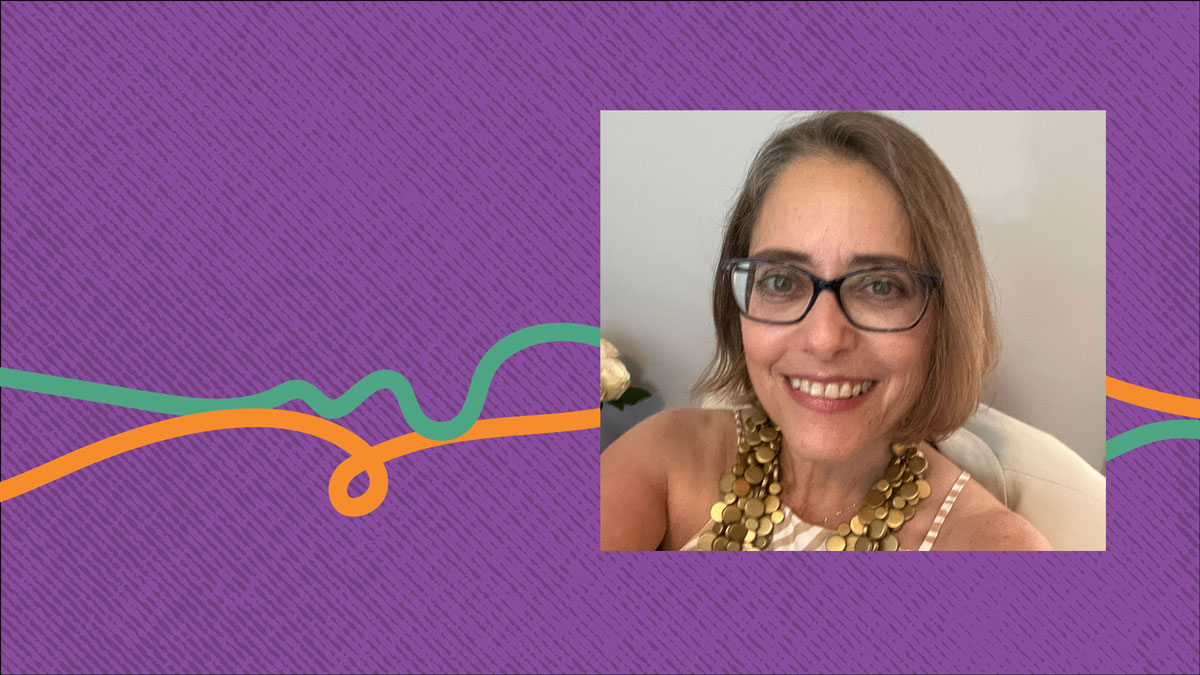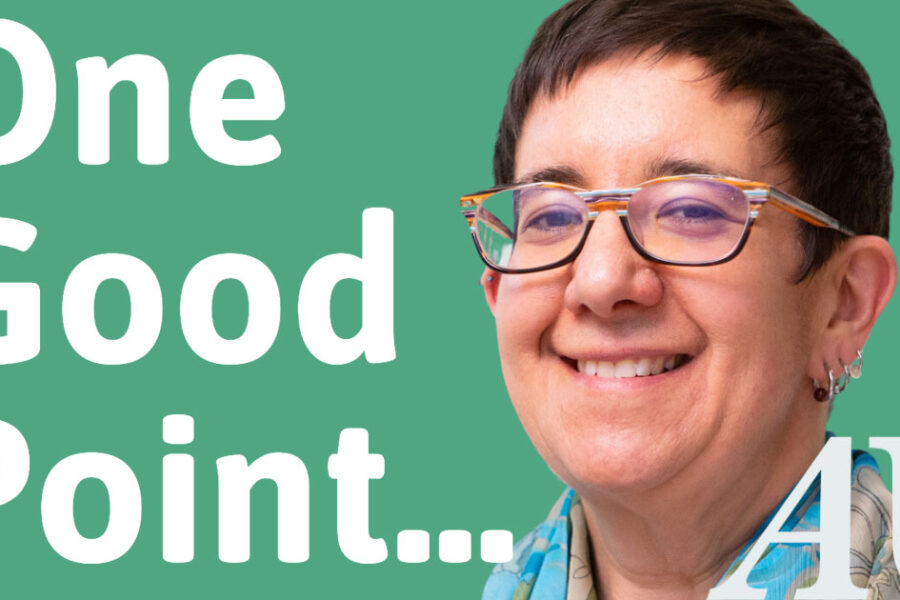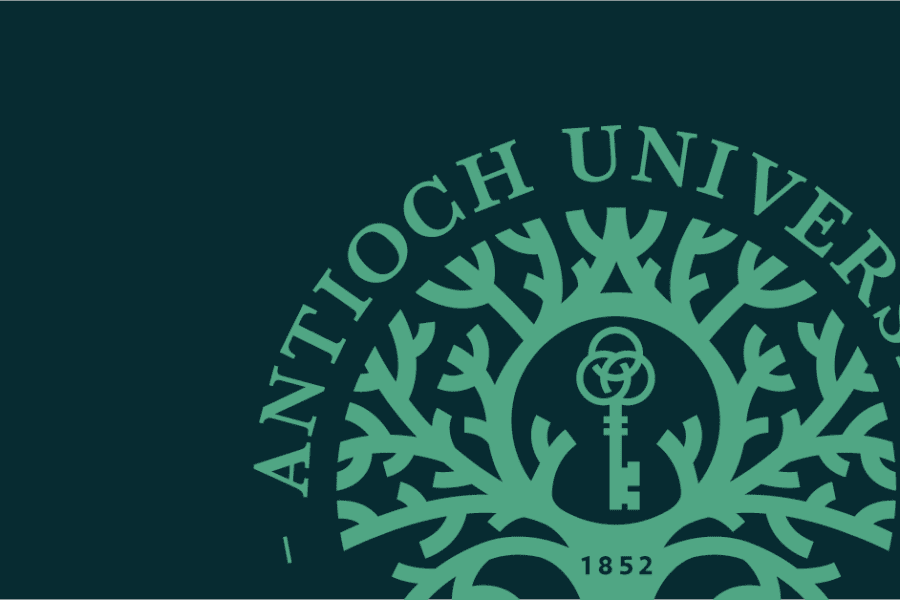Antioch University is thrilled to announce that Amy Rutstein-Riley, PhD, MPH, will join the Graduate School of Leadership and Change (GSLC) as Associate Dean to lead the PhD in Leadership and Change program, effective July 1, 2023. Through an extensive search process that began in the summer of 2022 and involved all GSLC faculty and staff, colleagues from other Antioch University departments, and GSLC students and alumni at the March residency, it became abundantly clear that Amy was the top candidate. She brings deep wisdom, relevant experience, a mission-driven vision, great humor, and tremendous energy to this opportunity to build the PhD program forward into its third decade. GSLC Dean Laurien Alexandre recently interviewed Amy; enjoy!
We are curious about what you find most appealing about the PhD in Leadership & Change Program that convinced you to join us? What is exciting you the most?
This is a challenging question to answer as there isn’t one “most appealing” aspect of the program that convinced me to join Antioch. Rather, the more I learned about the innovative curriculum design, the centrality of the learning partnerships between faculty and students, and the diversity of faculty areas of expertise and scholarly interests really spoke to me and left me feeling energized. Following every step in the search process, I increasingly felt more excited about the opportunity to work with the members of this interdisciplinary learning community.
I was particularly struck by the faculty connectedness and the overriding care of the students’ academic experience in the program. I was also very impressed by the students and alumni I had the opportunity to meet and by the ways they spoke about their experiences in the program. It was quite evident they wanted me to understand the uniqueness of the program and the need to have the next leader embrace the commitment to the program’s values. After my “campus visit,” I could envision the PhD in Leadership and Change Program becoming the professional home for my next chapter, offering me an exciting space to contribute and grow.
As an experienced scholar and academic leader for decades, you’ve been aware of Antioch University for many years. What resonates about this institution, its roots, and its values? What do you see as the challenges for universities like Antioch?
A year from now, I will answer this question in a far more nuanced way, but at present, I can say I have admired Antioch for its deep and longstanding commitment to social justice, progressive education, and for preparing and supporting learners who are self-authoring and purpose-driven. The alignment of Antioch’s portfolio of academic programs with its mission is very clear, preparing learners to advance social, economic, and environmental justice.
In 2023 this mission is necessary and urgent, with significant social challenges aplenty. Antioch’s value for facilitating academic programs that build upon learners’ lived experiences and knowledge is particularly meaningful to doctoral students who bring to the academic endeavor significant knowledge and professional background. Antioch’s mission, values, and constellation of programs is distinctive and impactful, and that is an asset for Antioch and the PhD Program.
However, in recent years there has been an explosion in low-residency doctoral education, and low-residency, hybrid, distributed models of education more broadly. COVID accelerated this shift, thus adding greater competition to a crowded marketplace. The challenge for Antioch, as well as universities like Antioch, is to own its distinctiveness, regularly study the portfolio, and to create processes and structures that advance a nimble approach to planning for new initiatives that are mission-centric and enhance and advance the learner experience.
You have a deep understanding of and broad experience with feminist approaches and relational leadership? How do you use those frames and models to guide your own leadership practices?
Many years ago, I participated in a year-long study group on feminist group process at Therapy Training Boston. That study group influenced the way I work in all spheres of my professional practice as a leader and educator. Studying Relational-Cultural Theory and Therapy at the Jean Baker Miller Institute at Wellesley College further shaped my lens on how I work and collaborate with others. I prioritize building relationships, listening to learn, and constructing group norms to guide my work with teams. Authentic collaboration and relational leadership require trust, empathy, and intentionally working with power and power differentials.
As an academic leader, I think about power a lot, and the role of gender and its intersections with other social identities, and how these identities get performed on the teams and groups I lead. I am not a go-it-alone leader. I center dialogue, connection, and collaborative decision-making processes and aim to engage authentically and with care. I am very fortunate to have some wonderful feminist mentors in my life who support my reflexive process as I actively work to check and challenge my assumptions and continue learning and developing as a relational leader. Perhaps the aspect of my own leadership work that gives me the greatest “zest” is supporting the development of others on my team, in turn providing me with energy and inspiration.
You have focused a lot of your attention inside and outside the academy on women’s identity and girls’ development. Can you share a bit more about this work?
Well, this is probably the subject of a much lengthier conversation, but I will try to preview a bit here. I am a graduate of a women’s college. It was in the women’s college environment that I developed my voice and quickly recognized the importance of gendered spaces for supporting the development of voice, identity, and agency. Since then, many of my academic pursuits, research, and service and volunteer activities focus on girls’ and women’s development. Throughout my college years, I worked at Planned Parenthood of Massachusetts as a peer educator. I traveled the state speaking with high school students and with youth participating in community-based organizations on the topics of sexual health and HIV/AIDS.
This transformative experience solidified my commitment to public health, and to issues of particular importance to adolescent and young adult women – risky health behavior, health decision making, health communication, reproductive health, sexual harassment and violence, and mental health. From this early part of my development, these issues remained consistently present throughout my academic career as a faculty member teaching courses and leading programs, leading Lesley’s Women’s Center and women’s studies steering committee, serving on the Lesley University Title IX committee, and as a co-recipient of the Avon Grant for the prevention of sexual assault on college and university campuses, advancing faculty development and student supports on sexual assault prevention.
The Girlhood Project was born from my intersecting interests on girls’ and young women’s development, as is the LEAD (leadership, enrichment, and development) program for women faculty I co-developed with two colleagues, Drs Diana Direiter and Stephanie Spadorcia. Outside of academia, I have served on the Massachusetts Women’s ACE (American Council of Education) Board of Directors, and currently on the leadership of the Boston Chapter of the American Association of University Women. The common thread woven through these examples is my commitment to mentoring and supporting girls and young women, and frankly, women of all ages, in the work of identity development.
Would you be willing to share what you’re reading right now – what’s sitting on your bookstand or Kindle?
Admittedly, my main addiction is to books. I do not read on a Kindle, and I have tried! I am often reading a bunch of different things at the same time. Fiction, memoir, academic, and non-fiction. The blend of titles from the bookstore and the library includes, in no particular order:
- Janice Carello and Phyllis Thompson, Lessons from the Pandemic: Trauma-Informed Approaches to College, Crisis, Change (Palgrave, 2021)
- Rebecca Kaiser Gibson, The Promise of a Normal Life (Arcade, 2023)
- Leigh Gilmore, The #MeToo Effect: What Happens When We Believe Women (Columbia, 2023)
- Elizabeth Holcombe, Adriana Kezar, Susan Elrod, Judith Ramaley, and Nancy Cantor, Shared Leadership in Higher Education: A Framework for Responding to a Changing World (Stylus, 2021)
- Mary Marcy, The Small College Imperative: Models for Sustainable Futures (Stylus, 2020)
- Katherine May, Enchantment: Awakening Wonder in an Anxious Age (Riverhead Books, 2023)
- Kim Samuel, On Belonging: Finding Connection in an Age of Isolation (Abrams, 2022)
- Bessel Van Der Kolk, The Body Keeps Score: Brain, Mind, and Body in the Healing of Trauma (Penguin, 2014)
If we were doing this interview a few years from now (and I hope we do!), and I asked you to look back on your time with us, what would you have liked to have learned? Done? In what ways would you like to have seen yourself grow?
Ok…best guess. First, I hope to come to belong in Antioch and in the PhD in Leadership and Change Program. Transition takes time, and currently, I am learning about the people and the program from an outsider standpoint. I hope the next time we interview that, I will have moved from an outsider to an insider position and will have learned and embodied the norms and values of the place and helped to co-construct new norms and values as well. I am a lifelong learner and am eager to be collaborating and learning with faculty, staff, students, and alumni. I am also excited by ideas and co-creating new opportunities for the Graduate School of Leadership and Change. I am hopeful about building upon the ideas of the last comprehensive program review and moving the agenda on curriculum innovation, decolonizing the curriculum, and building new initiatives and partnerships that fit with and advance the mission and values of the PhD Program and GSLC. It is hard to know how I envision my growth while I am concerned with planting my feet in a new place. However, I am open to all the new possibilities and opportunities and am excited about growing in and through connection with my new colleagues.
I was struck by your commitment to change and your belief in the power of individual growth, positive self-images, and robust understanding of race-class-gender in the lives of women and girls. I wonder how you’ve been able to hold onto hope during these most difficult times with fundamental attacks on women’s health and reproductive rights, with racist violence across the country, and with increasing economic inequalities undermining the health and well-being of so many. Where do you find strength and hope these days?
Well, honestly, it is very hard. Some days I want to go hide under the covers and not get out of bed. But the way I find hope is in connection with the very girls and young women I care about. I remain connected to my former students, many who have graduated long ago. I am actively engaged with current and former colleagues who are doing the real work in the public health space, in K-12 education, in mental health and healthcare settings, and I provide supportive partnership for dialogue and problem-solving. The anger and despair I feel motivates me to not look away and hide. I connect and continue to advocate and do so locally. Being in a relationship with many girls and young women and with those who work with them keeps me moving forward in the face of these overwhelming challenges.
Would you please share something about yourself that you would like our community to know that they wouldn’t learn from your CV?
Ok, a couple of things. Not only do I love books, but I adore independent bookstores. I often spend free time in bookstores, and if there is a coffee shop in the bookstore…well, utter delight in my next chapter perhaps a job in a bookshop. I also recently bought a new camera to revisit an old love of mine. It has been a very long time since I last used a camera that was not part of a phone. I am going to engage my beginner’s mind and start taking photos again. Please ask me about this at our next interview in a few years.





